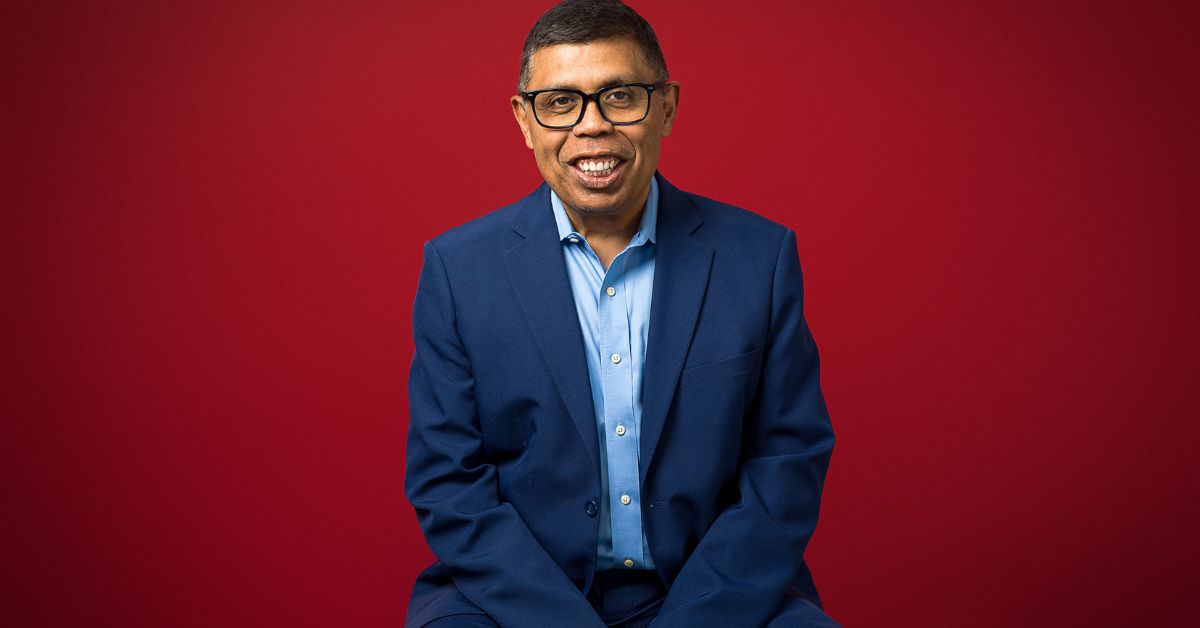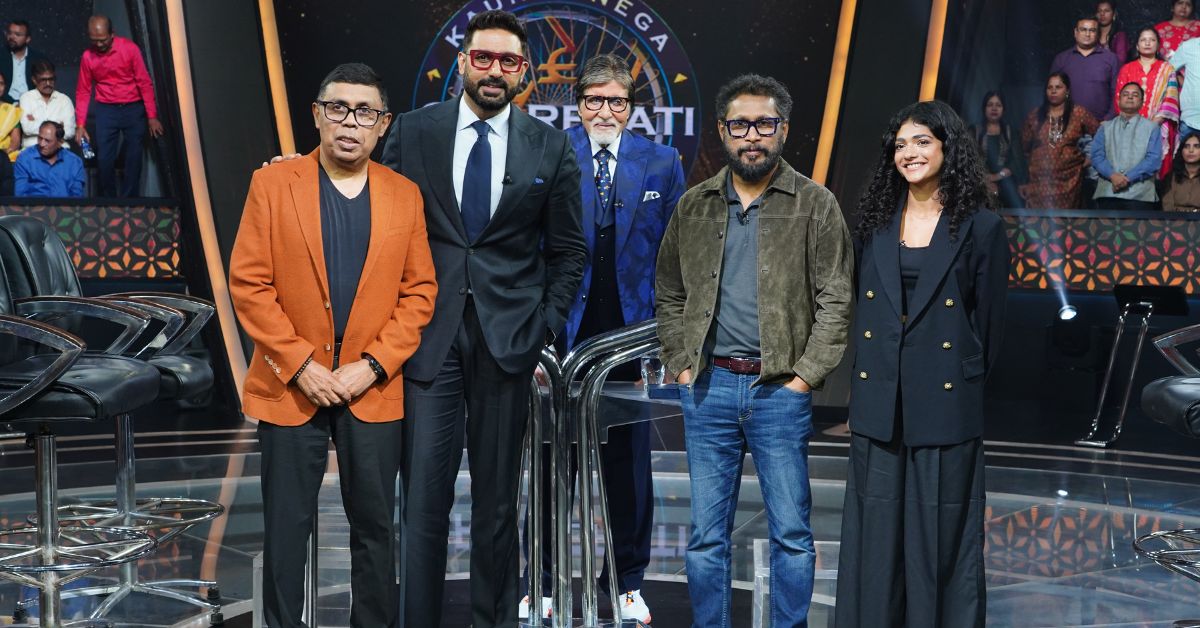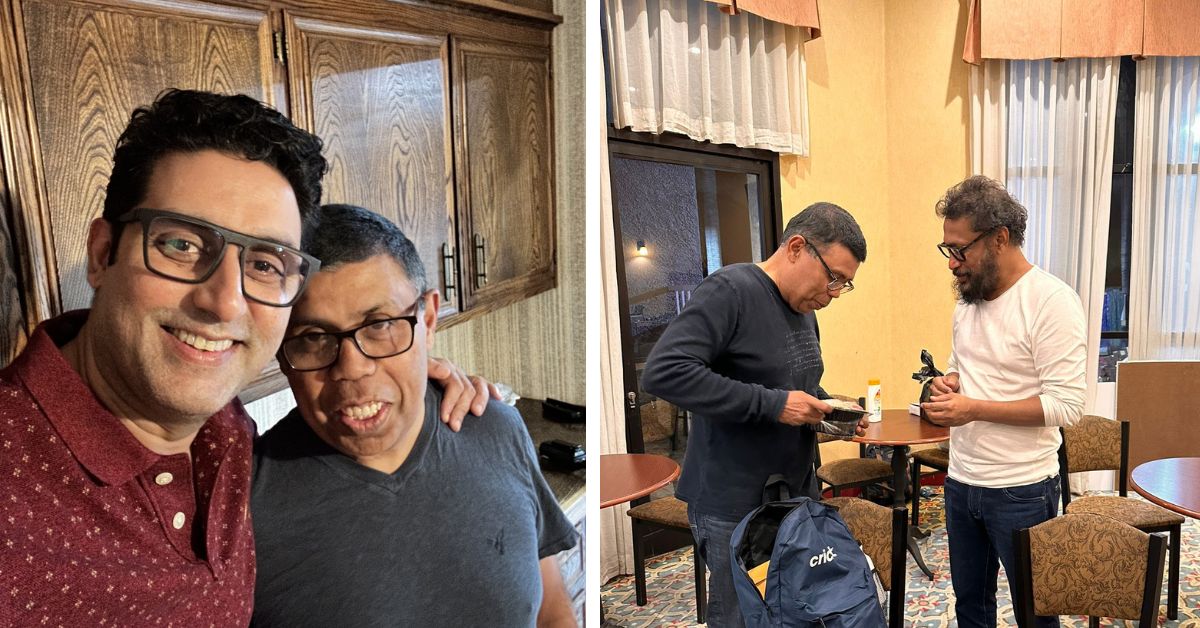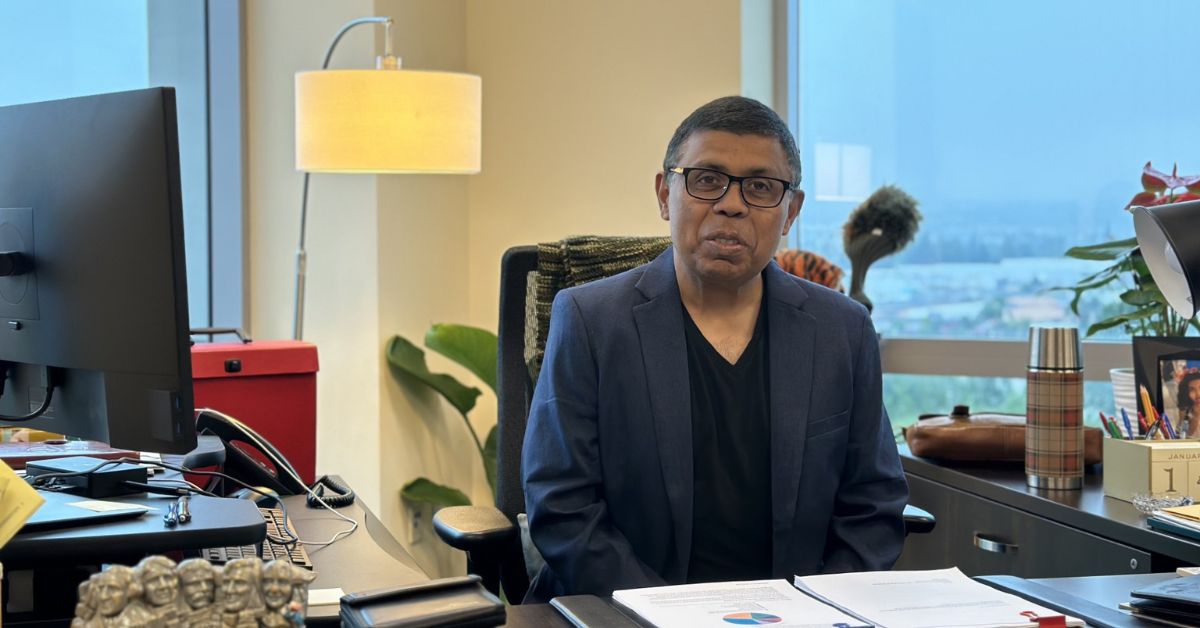My Cancer Gave Me 100 Days to Live — Until My 3-YO Daughter Asked, ‘Papa, Will You Dance at My Wedding?’
Arjun Sen (61) adores numbers. Maybe it’s because he’s a marketing executive. But beyond the corner office, too, this sync persists. A conversation with the multihyphenate — he’s a podcast host, author, entrepreneur, and motivational speaker — reveals how digits have dictated much of his life. In 1996, Arjun was handed a prognosis of ‘100 days to live’ following a diagnosis of laryngeal cancer that had metastasised to the stomach. Then followed 20-odd surgeries — a race against time to beat the invasive cancer that was making inroads into his body systems.
His forte has always been numbers. And so, when from my list of interview questions, he tells me he’s biased toward number 10, I smile. Case in point.
You enjoy making people laugh. Did you find it in yourself to celebrate the small wins while you underwent treatment? Did you have any semblance of joy?
Question 10 unplugged a heavy stream of emotion. Because the dichotomy, you see, is where Arjun lived for the duration of his treatment. For someone who was the life of the party, effortlessly witty, wore his humour on his sleeve, and couldn’t sustain a conversation without cracking a joke, being told he was dying must have put a damper on his spirits, I presume. Arjun doesn’t deny it.
He watched as normalcy was disrupted, giving way to rigorous chemotherapy, radiation, and pain.
Arjun was confronted with two options: to laugh or cry.
Which emotion did he indulge? Both, he clarifies. But the former won.
“You can’t always be taking life so seriously,” he reasons. If you ever meet Arjun, you won’t have to worry too much about breaking the ice. Leave it to him. He’ll introduce himself as ‘the world’s first sit-down comedian’, who guarantees that ‘one person will always laugh at his jokes’. Himself. It’s his way of saying he’ll always find the ‘happy’ in a situation — a knack that stood him in good stead during his prognosis.
 Arjun Sen is a podcast host, author, entrepreneur, and motivational speaker
Arjun Sen is a podcast host, author, entrepreneur, and motivational speaker
Battling cancer meant making optimism the touchstone of his life. Control what you can, and surrender the rest, he figured. But, it’s easier said than done.
There were moments of grief and angst. He tried his best, however, to temper worry with hope, to crack the painful interludes with humour. And along the way, his life’s leitmotif became to ‘live in the present’.
Because if you aren’t, what are you really doing?
‘Papa, what is death?’
Arjun was 32 when he was handed a death sentence (he calls it a life sentence). But, before he could make peace with it, he was faced with two big button eyes looking at him for answers. His three-year-old toddler, Raka, had questions.
What is death?
Are you dying, Papa?
Will you dance at my wedding?
“I’m not dying,” Arjun assured her. Then, as soon as the words left his mouth, he realised his mistake. He’d essentially made a promise. Now he must keep it. “So will you dance at my wedding?” she continued, silently urging him to make another promise. He did.
“I’ve been practising my moves,” he told her, “But why are you in such a hurry to get married?” This was met with the cutest eyeroll.
Her question had snapped awake a newfound motive in Arjun — a desire to live. And, in hindsight, he says, it formed the premise for the rest of his life. Though young at the time, Raka’s support transcended her age. She was a silent cheerleader, Arjun maintains. “She was cool, calm, wise, caring, loving, and never gave up.” In his book Raising a Father (2009), Arjun elaborates on this moral reckoning, “I realised the path I was on, my father-daughter future will get reduced to obligatory phone calls on birthdays and Father’s Day. I decided to make this wake-up call count and chose to quit the corporate world. I had one mantra: just be present.”
 Arjun during his treatment phase (L); Arjun with his daughter Raka (R)
Arjun during his treatment phase (L); Arjun with his daughter Raka (R)
The term cancer-free doesn’t sit well with Arjun. “It usually implies getting a clean chit. But even once I did, a voice in my head would keep asking: What if it comes back?” He was scared of having life wrestled from him again. The worry persisted, but the inflection point came when he made peace with the architects of fate — if cancer has to return, let it, we’ll see what happens.
He wouldn’t live his life in fear.
 Arjun (extreme left) and Shoojit Sircar (second from right) were on the sets of Kaun Banega Crorepati (2024) to promote the film I Want to Talk — a film inspired by Arjun’s life
Arjun (extreme left) and Shoojit Sircar (second from right) were on the sets of Kaun Banega Crorepati (2024) to promote the film I Want to Talk — a film inspired by Arjun’s life
“I don’t fight with cancer anymore. I’ve realised that cancer and I are married; it isn’t the happiest of marriages, but till death do us part. And as long as we don’t kill each other, we are totally cool,” Arjun joked with Amitabh Bachchan on the sets of Kaun Banega Crorepati (2024). He was on the hot seat with Abhishek Bachchan, who plays the lead in I Want to Talk — a film inspired by Arjun’s life.
Giving comic touches to pain
Laughter is the best medicine.
It’s something we were taught growing up. But it’s Arjun’s story that really put this adage into perspective for me.
“While working with brands to help them scale, we emphasise the importance of building a connection with customers. In the case of my cancer treatment, too, I knew that my chances of survival depended on the emotional connection I built with my doctors,” Arjun reasons.
His operating theatre used to be a sight to behold. No one was spared, not the nurses — Arjun would say to them: ‘May your efforts go in vain (a pun on vein, see?)’ — and quiz the anesthesiologist, ‘On dates, do you tell the other person you knock people out?’ The medics would laugh. He would laugh.
Then the surgery would commence.
But despite his candour, Arjun doesn’t shy away from vulnerability. “The night before every surgery, reality would hit; I’d realise that the failure or success of the surgery would dictate whether I would live or not. As human beings, we have limitations and breaking points. There are times when one thing would happen after another, and I would feel like giving up hope.”
But, he continues, “At my core was the belief that someday death will win, but until then, my mind must.” The secret lay in trading his vocabulary of fear for one of hope.
And today, look at him!
Those who’ve been close to him would agree that his journey would pale any movie in comparison. Director Shoojit Sircar of Piku (2015) and Vicky Donor (2012) fame seemed to think so too. His slice-of-life film I Want to Talk is an emotionally beguiling story of the complexities of a father-daughter dynamic juxtaposed against the father’s medical diagnosis.
 Arjun with Abhishek Bachchan (L) who essayed the character based on his Arjun’s life story; Arjun with Shoojit Sircar (R), director of the film I Want to Talk
Arjun with Abhishek Bachchan (L) who essayed the character based on his Arjun’s life story; Arjun with Shoojit Sircar (R), director of the film I Want to Talk
In a blog post, Shoojit admits that when he first heard Arjun’s story in 2020, making a film hadn’t crossed his mind. But then something clicked. “I have always had a certain intrigue about death and have dealt with it in my past films. In my conversations with Arjun, I saw a bizarre journey, some kind of a chess game between life and death. What began to resonate with me was how the story was very everyday human. It had splashes of humour, moments of attitude, and at times, a sarcastic take on life.”
Who is in your corner?
Sherpas (a term associated with people who live in the Himalayas and help mountaineers find their way through tough terrain) is what Arjun calls his daughter and all the people who supported him in his fight against cancer. They’ve helped him move forward. Reminiscing is not something Arjun enjoys. “The only reasons I’d ever revisit my past would be to learn from it or to celebrate it. I don’t want to live thinking about what I could have, would have, or should have done,” he shares.
Instead, do what you can in the moment.
 Arjun Sen has grown to celebrate his life and live in the present believing that he can conquer anything with a positive attitude
Arjun Sen has grown to celebrate his life and live in the present believing that he can conquer anything with a positive attitude
He recalls a certain marathon that he had signed up for prior to one of his surgeries, well aware that he wouldn’t be able to reach the finish line.
“When I reached the starting line with people around me all stretching their muscles, I did some math. It takes me 2,500 steps to cross one mile. If you multiply it by 26.2 miles, it’s nearly 65,500 steps. The moment I saw that number, I immediately saw a billboard in my head that said ‘impossible’. But then I told myself that I don’t have to take 65,000 steps. I have to take one step. And my one reason was that my daughter was waiting.”
“You need just one person who won’t give up on you, who will offer their hand and help you up,” he shares.
A man of numbers, he leaves us with one parting advice: “We all have a final number of days; some of us have 60, some of us have years. When my doctors told me I had 100 days to live, I said, ‘Okay, that’s still more than zero’.”
The important thing, he says, is to realise that, no matter what, you have these 24 hours.
Make them count.
Edited by Khushi Arora, All pictures courtesy Arjun Sen
Sources
News